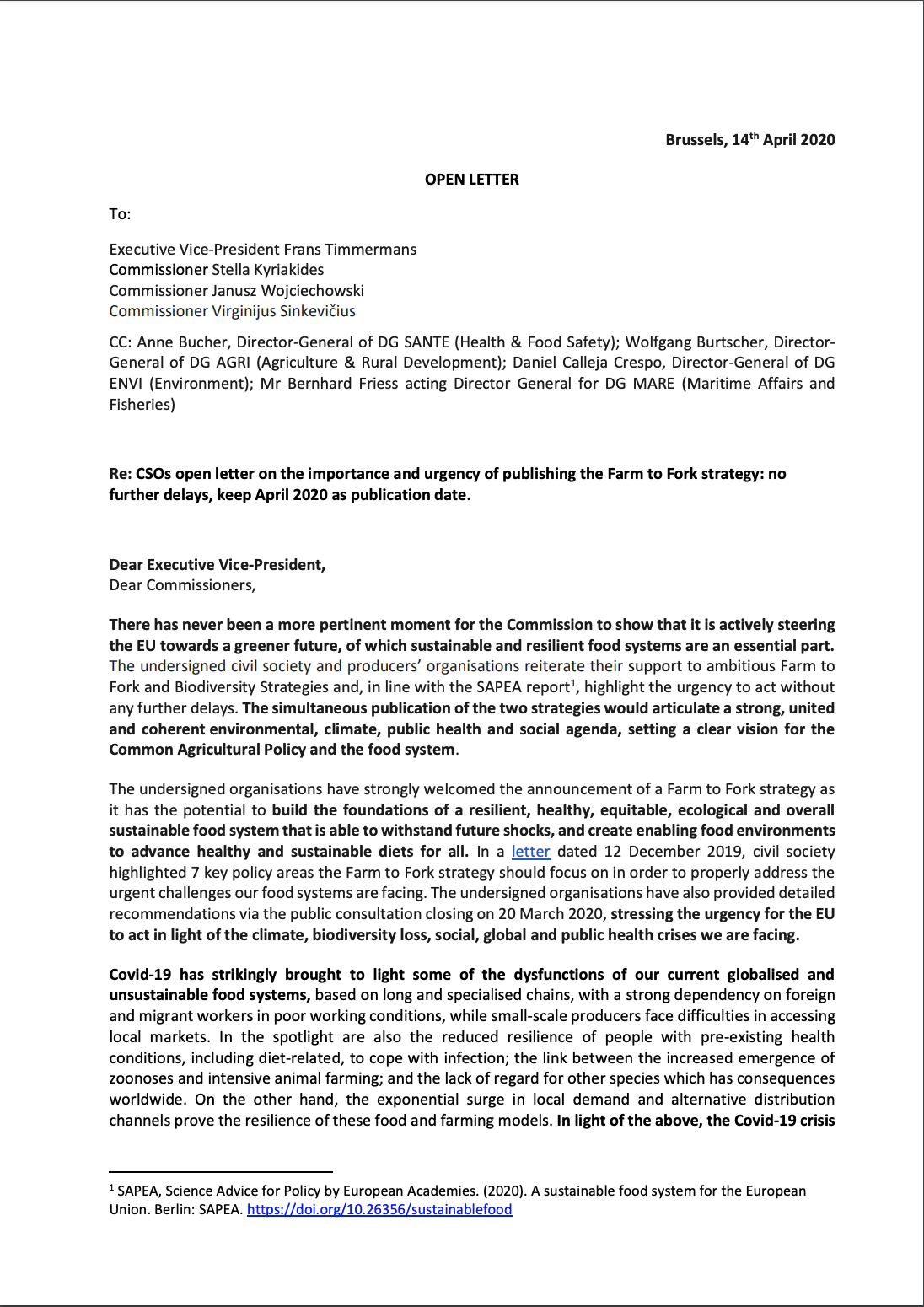Responding to the food challenges of a pandemic
The COVID-19 pandemic has highlighted many aspects of our society are in need of urgent change, including how we produce and consume our food. We need a Common Food Policy in the EU that is forward-looking, precautionary, resilient, and health orientated – to achieve that, we need a timely and ambitious Farm to Fork strategy without delay.
COVID-19 has shown that our current globalised and unsustainable food system is dysfunctional, based on long and specialised supply chains with a strong dependency on migrant workers, meanwhile small-scale producers face difficulties in accessing local markets whilst demands change during periods of lockdown. The exponential surge in demand for local and alternative distribution channels, however, has proven the resilience of local food and farming models.
This virus has also exposed how pre-existing health conditions, including those related to diet, present a greater risk of infection. In line with its unique healing mission, the European healthcare sector must contribute to an environmentally sustainable and socially equitable food system that promotes and enhances health and wellbeing.
Last month HCWH Europe provided feedback on the EU’s proposed Farm to Fork Strategy, and has now joined 39 other organisations to call upon the European Commission to not delay publishing this strategy (due at the end of April 2020), and provide a clear way forward to the sustainable food transition.
The importance and urgency of publishing the Farm to Fork strategy
Publishing the Farm to Fork strategy without delay is an important opportunity to deliver a coherent and integrated response to the multiple environmental, health, and socio-economic challenges we face in our current food system, paving the way towards a resilient and sustainable food policy for the European Union.
Urgent action is needed to reduce antimicrobial use in agriculture and introduce mandatory data collection on antibiotic use for benchmarking and monitoring. The transition to more plant-based diets is vital - healthy options must become the easiest and most affordable choice. This transition has to be supported by public procurement and the introduction of nutrition education into medical curricula, which will also important help to reduce food waste across the supply chain.

